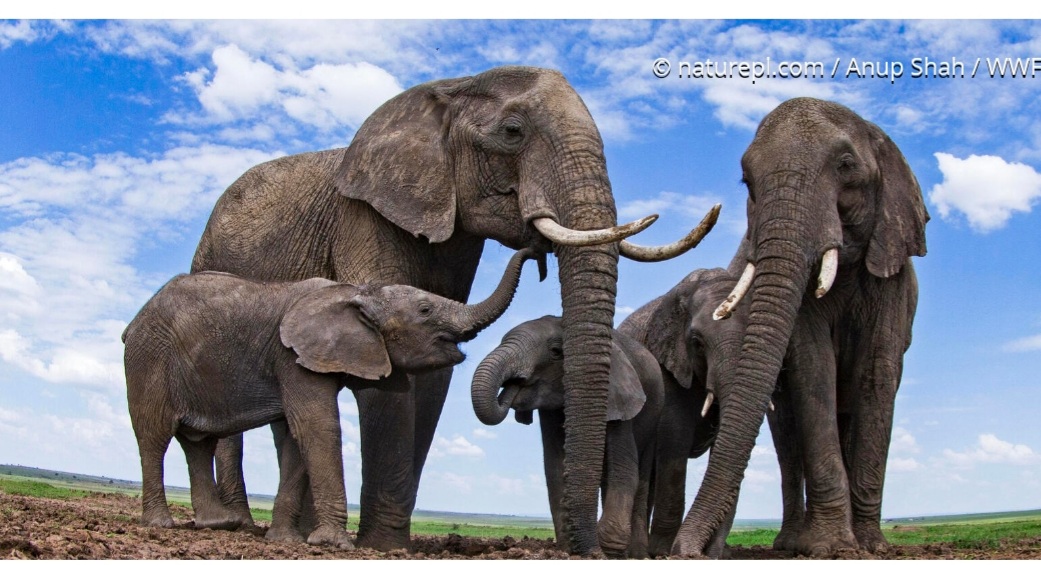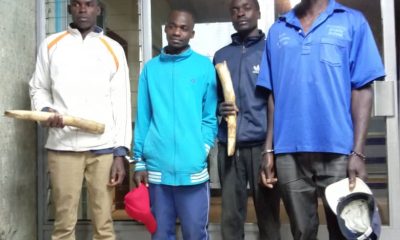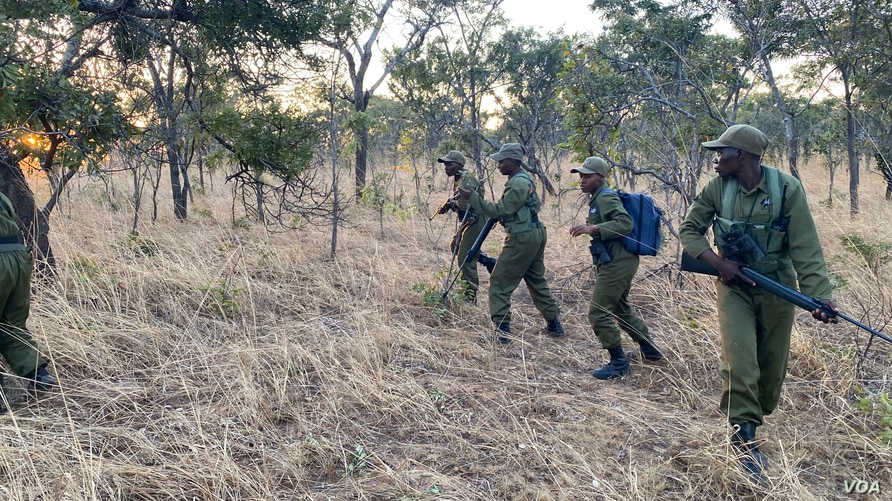BY NOKUTHABA DLAMINI
Blessing Waison and Fortunate Chidzivo took top honors at the 2025 Econet Victoria Falls Marathon yesterday, as Zimbabwean long-distance runners excelled at Africa’s most prestigious road race.

Econet General Manager – Marketing, Mrs Tariro Muchena (left), and Finance Director, Mr Chengeto Moyo, present the winner’s prize to men’s marathon champion, Blessing Waison, at the 2025 Econet Victoria Falls Marathon, while Victoria Falls Mayor, Mr Prince Moyo, looks on
The event, which featured athletes from over 40 countries, saw Waison storm to victory in the men’s full marathon, clocking 2 hours, 13 minutes, and 16 seconds. He narrowly beat decorated Olympian Isaac Mpofu in a thrilling duel that brought thousands of spectators to their feet.
Godwin Katakura followed closely in third, completing an all-Zimbabwean podium sweep in the 42.2km race. The trio’s success came with bigger rewards this year, after Econet Wireless doubled the total prize purse to $50,000.
Waison walked away with $3,000, while Mpofu and Katakura earned $2,000 and $1,500, respectively.
In the women’s marathon, Chidzivo delivered a commanding performance, clocking 2 hours and 42 minutes to claim another major title in her illustrious career. Ethel Pangiso and Phillipa Dube completed the women’s podium in second and third place, respectively.
Rising star Wayne Kabondo turned heads in the men’s 21km half marathon, overcoming a formidable field to finish in 1 hour, 3 minutes, and 44 seconds. Kabondo pocketed $1,500 for his efforts.
In the women’s 21km race, Caroline Mhandu crossed the line in 1 hour, 17 minutes, and 50 seconds, ahead of Miriam Sibanda and Melody Kaseke.
The marathon’s inclusive spirit was evident in the 18km Specially Abled Races, which saw uplifting performances across different categories. Godknows Hamadziripi claimed the men’s tricycle title, while Samson Muroyiwa won the handcycle event.
Among the women, Stella Jongwe triumphed in the handcycle race, and Ratidzo Tomu took first position in the tricycle category.
Organized by Econet Wireless in partnership with Wild Horizons, the 2025 edition drew over 5,000 participants and spectators from more than 40 countries. The marathon route, widely regarded as Africa’s most scenic, winds through game reserves and offers spectacular views of the Zambezi River and Victoria Falls.
https://x.com/vic_falls_live/status/1941861569450725776?s=46
Beyond the races, this year’s event featured live music, traditional dance, health expos, and community wellness activities.

 Slider3 years ago
Slider3 years ago
 National4 years ago
National4 years ago
 Opinion3 years ago
Opinion3 years ago
 Tourism and Environment4 years ago
Tourism and Environment4 years ago
 National2 years ago
National2 years ago
 National3 years ago
National3 years ago
 National2 years ago
National2 years ago
 National4 years ago
National4 years ago






